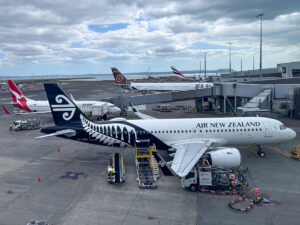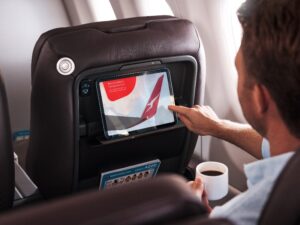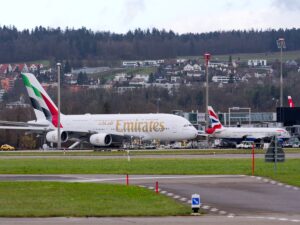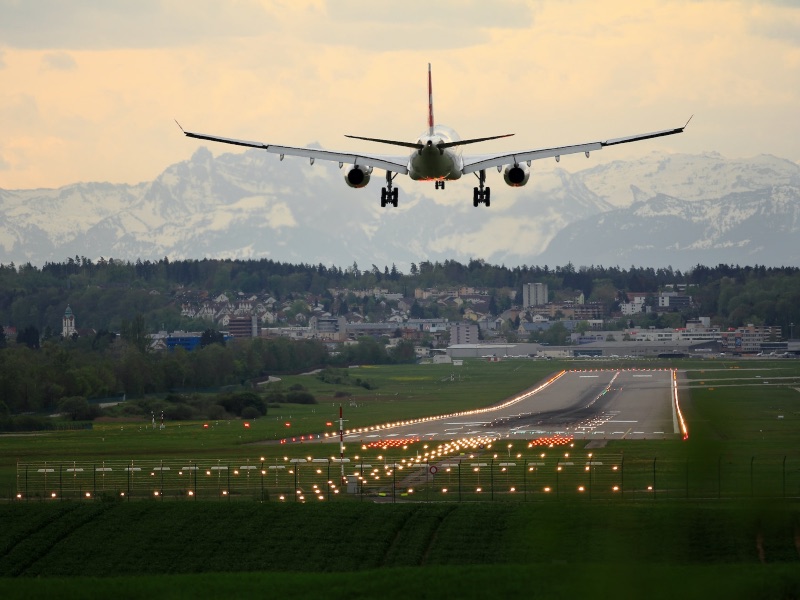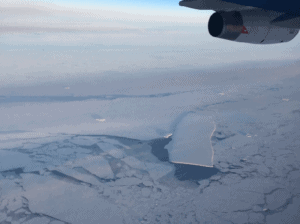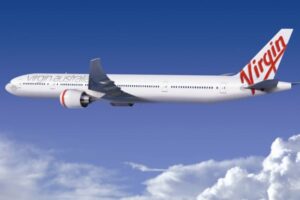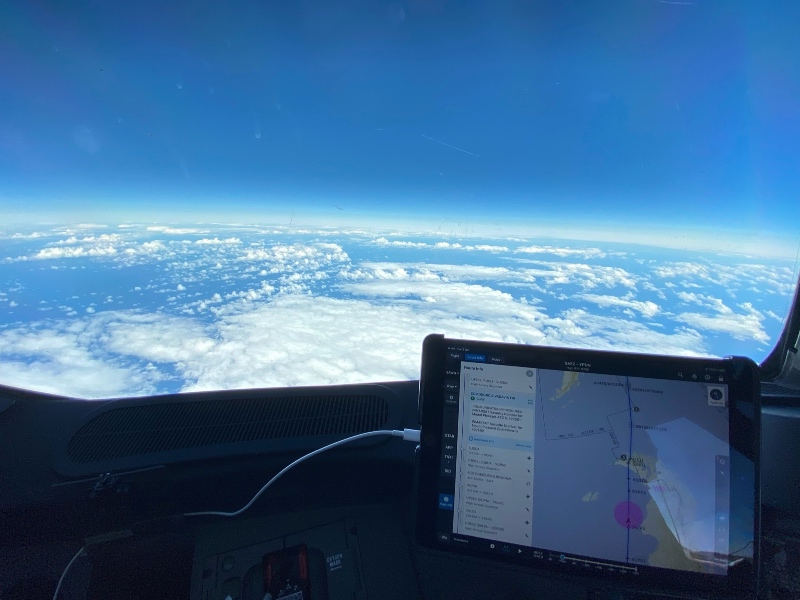
Qantas operated its longest ever “commercial” flight yesterday, flying 107 passengers non-stop from Buenos Aires in Argentina to Darwin.
Flight QF14 took off from Ministro Pistarini International Airport in Buenos Aires at 12.44pm on Tuesday, local time, before heading south for the 15,037km trip to Darwin. (The actual flight path was 354km longer than the shortest, or “great circle” route.)
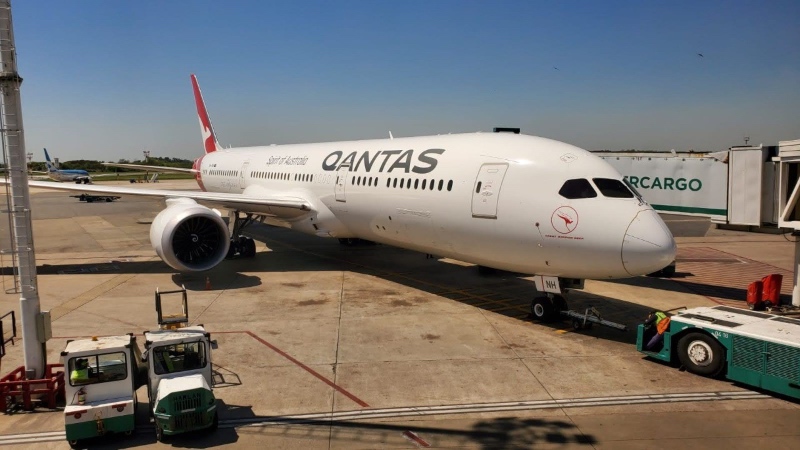
It landed in the top end at 6.40pm local time on Wednesday after 17 hours and 26 minutes in the air.
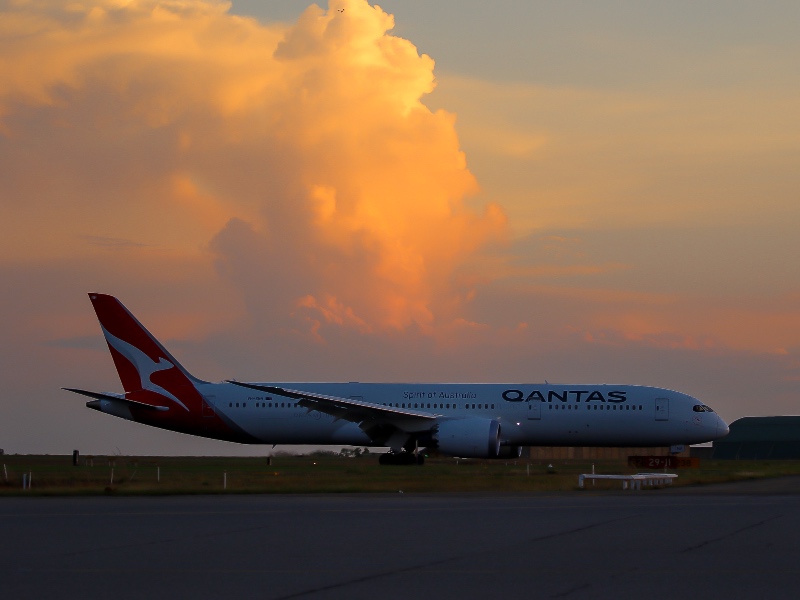
As well as being the longest Qantas passenger flight in the airline’s history, the flight path of QF14 took it directly over the Antarctic continent. The official flight path would have taken passengers as far as 74 degrees south of the equator, providing great views of West Antarctica for around four hours. Later in the flight, the Boeing 787-9 reached the Australian continent near Nullarbor in South Australia.
“There were some truly spectacular views as we tracked across Antarctica, which was an extra bonus for our passengers who were very glad to be coming home,” Captain Alex Passerini said.
Here’s the flight path from Flightradar24:
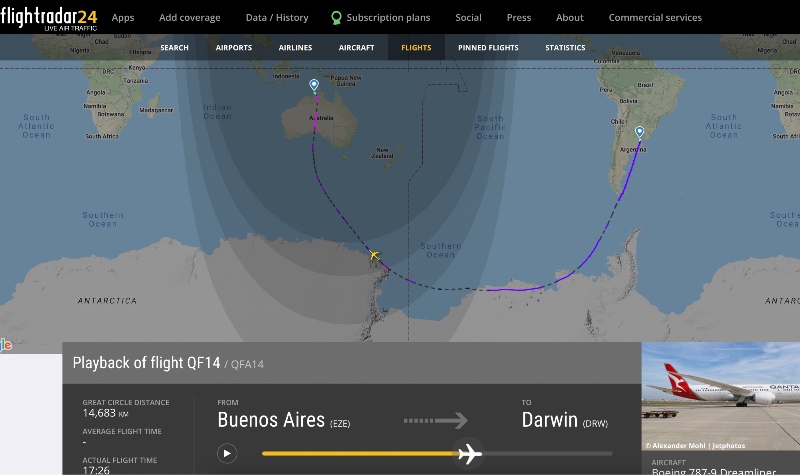
The operating Boeing 787 has already returned to Sydney this morning, positioning from Darwin without passengers overnight.
The Antarctic scenery would have provided a bit of excitement for the 107 passengers on board before they entered 14 days of mandatory isolation at Howard Springs. Many of the Australians on board had been stranded in South America for well over a year, and some had struggled to even reach Buenos Aires in time to make the flight.

The most direct route would have taken the flight even closer to the south pole. But commercial flights try to avoid flying too close to the south pole due to potential problems with the magnetic fields around the pole interfering with navigation equipment. Being a twin-engine aircraft, the Boeing 787-9 is also bound by Extended Diversion Time Operations (EDTO) rules which require the aircraft to remain within a certain distance (generally around 330 minutes) of an available airport at all times, in case a diversion is required. Until 2040, there are no airports in Antarctica able to accept commercial flights.
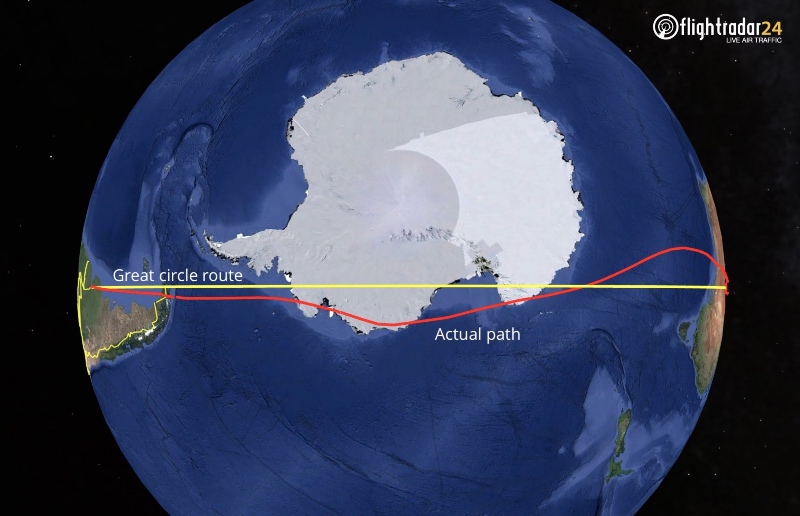
The aircraft, VH-ZNH (named Great Barrier Reef), had positioned from Brisbane to Buenos Aires last Sunday morning with the Argentinian rugby team on board.
Qantas regularly flew Boeing 747s non-stop between Sydney and Buenos Aires from 2008 until 2012, when the airline switched its South American route to Santiago, Chile.
Qantas’ longest non-stop passenger flight is normally Perth-London, which clocks in at 14,499km. But this is not the longest flight Qantas has ever operated. In 1989, and again in 2019, Qantas flew 17,016km non-stop from London to Sydney. But those flights were only run for publicity and research purposes, with the 2019 Project Sunrise research flights carrying only a small number of airline staff and invited members of the media.
The current record holder for the world’s longest commercial flight is Singapore Airlines’ Singapore-New York service, covering 15,348km.
Whether yesterday’s Qantas flight from Buenos Aires to Darwin counts as a commercial flight is a matter for debate. All of the passengers on board had paid for their own seats, with Economy fares starting from around AU$2,350, but tickets were not available for sale to the general public. This was an Australian government charter flight and tickets were only sold to Australians stranded in South America who were registered with DFAT.
Qantas does normally have two regular commercial flights that often overfly Antarctic icebergs. But it is rare for these flights to travel further south than around 71 degrees below the equator, meaning they don’t normally fly directly over the Antarctic continent.
Here’s an example of a particularly southerly flight path used by Qantas flight QF28 from Santiago to Sydney. On this flight, there were good views of icebergs but the aircraft didn’t quite reach the Antarctic continent.
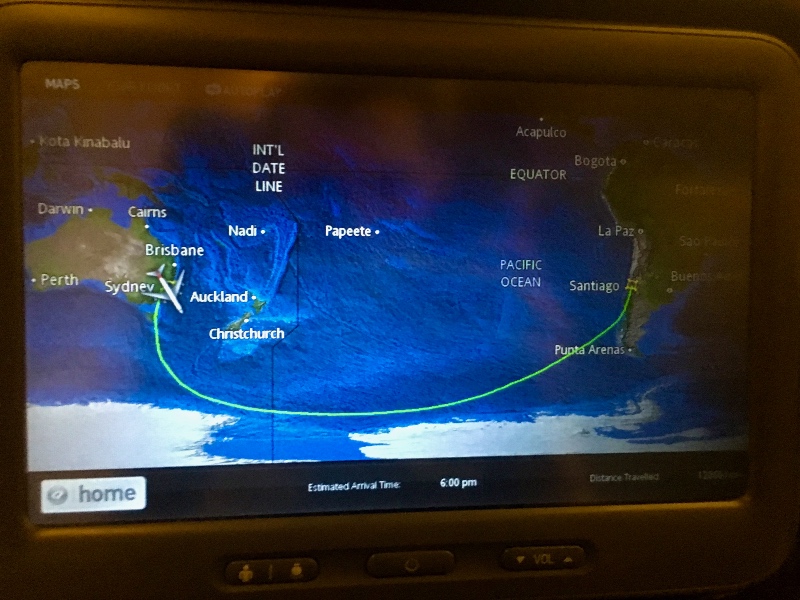
The best views of icebergs I’ve encountered were on Qantas flight QF63 from Sydney to Johannesburg.
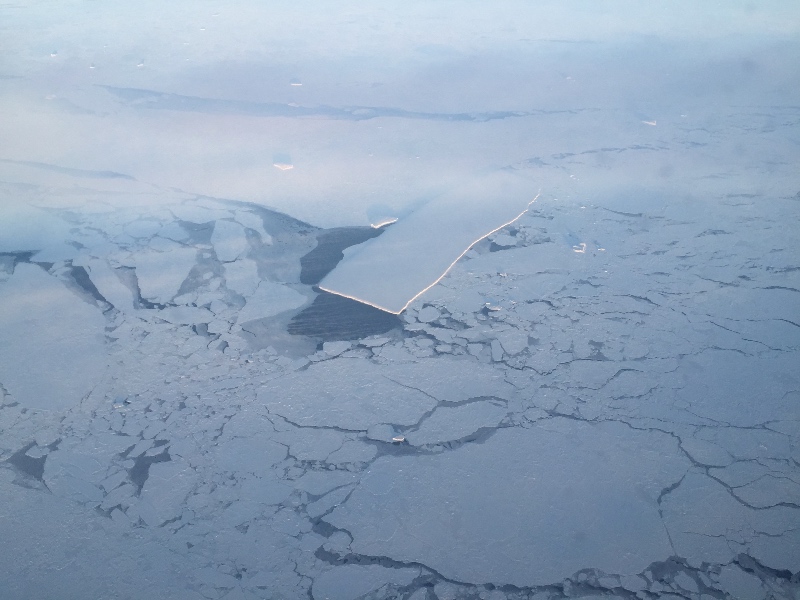
This flight ventured as far as 65 degrees south.
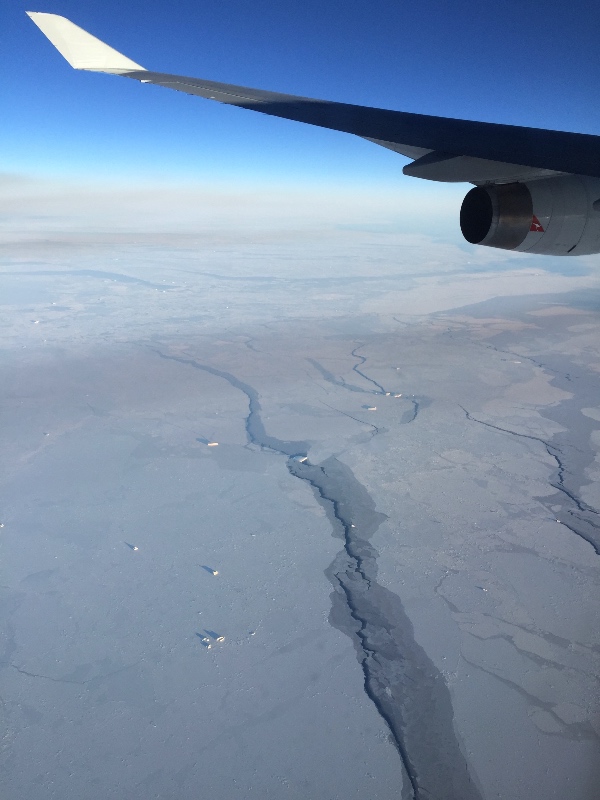
On this occasion, the cabin really came to life when views of icebergs appeared out the window, with passengers moving around and sharing windows to try and get the best views. (Obviously, this was before COVID-19!)
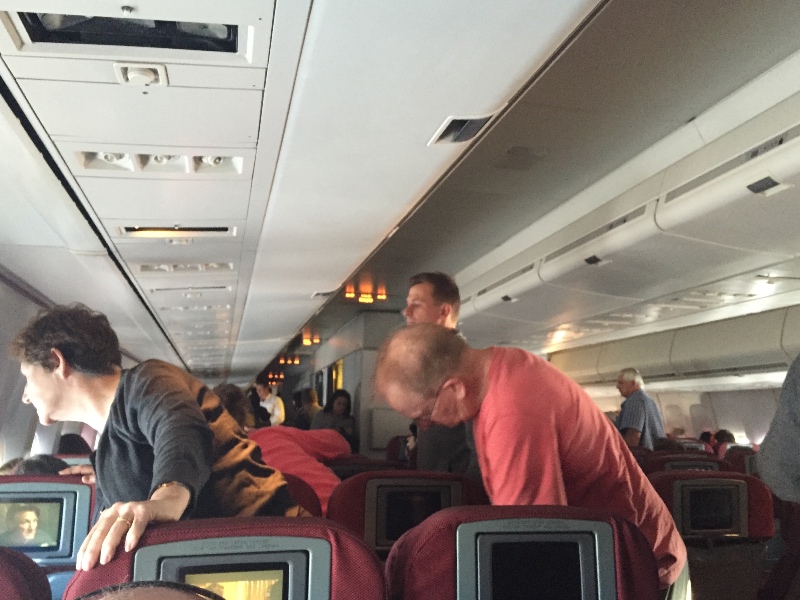
Qantas also runs several Antarctic sightseeing flights each year on behalf of tour operators.
Qantas has operated a range of other interesting charter flights during the pandemic including Brisbane-Fairbanks and Brisbane-St Lucia. The St Lucia flight was actually longer than the Buenos Aires-Darwin flight, but carried the Australian men’s cricket team rather than paying passengers.
Qantas has been operating semi-regular repatriation flights to Darwin throughout the pandemic on behalf of DFAT from cities including London, Frankfurt, Istanbul, Johannesburg, Delhi, Islamabad and Vancouver.
Bizarrely, this now makes Darwin Airport one of the few airports in the world to have handled non-stop passenger flights from every inhabited continent. This is also the first time a flight from every inhabited continent has touched down at a single airport in the same year.
Back at the beginning of the pandemic, Virgin Australia also operated a non-stop charter flight from Paris to Brisbane – which is longer than any of Qantas’ pandemic charters.
Join the discussion on the Australian Frequent Flyer forum: Qantas’s longest-ever commercial flight bringing stranded Australians home from Buenos Aires
